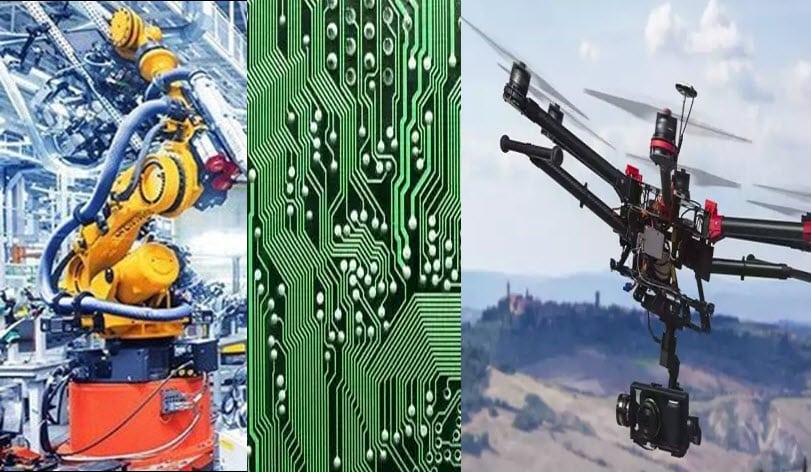Want to fly high in the technical revolution? The new Associate in Science Degree in Electronics, Robotics, and Drone Technology (ERD) at New England Institute of Technology provides leading-edge education and training in some of the most robust, exciting and emerging fields of the 21st Century.
The use of robots and aerial drones will drive structural changes in our economy and everyday life in areas ranging from driverless cars and medical procedures to automated manufacturing processes and aerial product delivery.
The Federal Aviation Administration anticipates the creation of 100,000 new jobs in the drone technology field, while USA Today reports that in the next three years, the use of drones is predicted to inject $13.6 billion in the U.S. economy.
Electrical and Electronics Engineers working with robotics and automated systems are responsible for the design, testing and operation of robotics and associated equipment. You’ll learn the necessary skills in robotic programming languages, robotic architecture and operating systems, and software interfaces. Beginning with electronic foundation core courses and culminating in aerial drone, robotics, and automation systems, our curriculum will provide you with the knowledge required to succeed in these modern high-tech fields.
Laboratory projects highlighted in ERD courses include active, hands-on experiences with robotic control systems and drone applications, data acquisition/control/communication, digital electronics, microprocessor control, and programmable automation controllers (PACs). Lab projects have been developed to simulate actual job conditions.
Aerial drone-specific courses will prepare you to sit for the Federal Aviation Administration’s (FAA) Section 107 Commercial Small Unmanned Aircraft System (sUAS) exam for pilot certification. In addition, technical elective courses provide the opportunity for in-depth study in areas including drone engineering, renewable energy systems, computer networking, CAD and manufacturing quality.
Graduates of this program are qualified to seek entry-level employment in several emerging areas such as drone mission programming [KS2], research and development, new product design, product testing, field service, controls engineering, manufacturing of complex electronic assemblies and systems, installation, marketing, and customer service. Associate degree graduates can also continue in the NEIT Bachelor of Science in Electrical Engineering Technology program.
Learn more about how New England Tech can help your career take flight at www.neit.edu.
#EngineeringTechDegreesAtNEIT #ElectronicsRoboticsDroneTechAtNEIT


